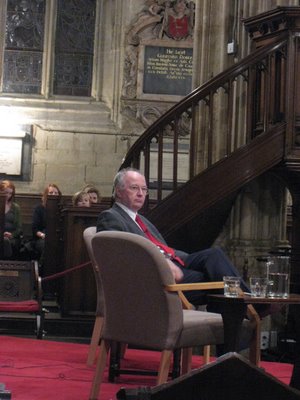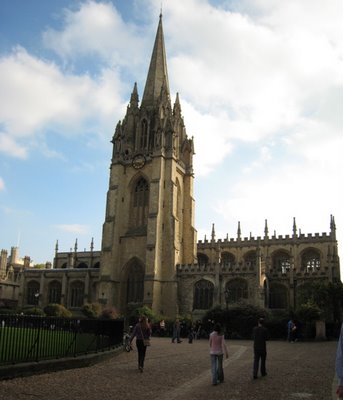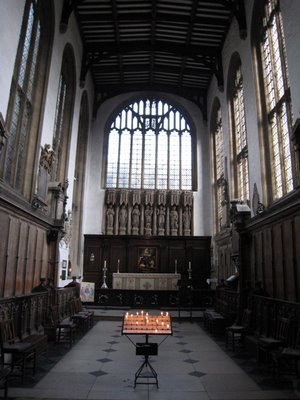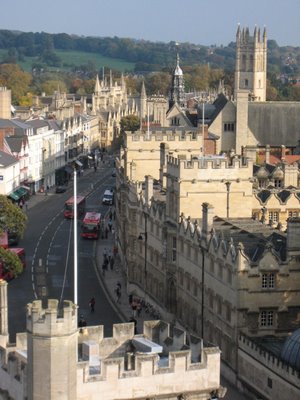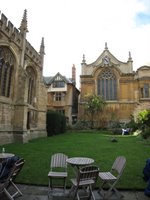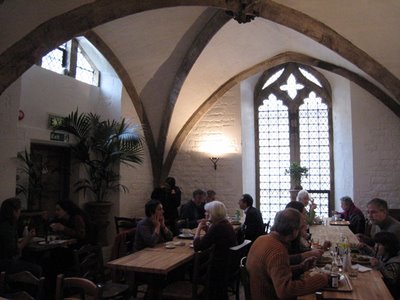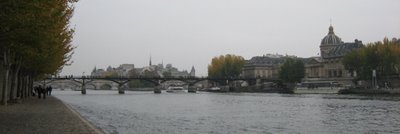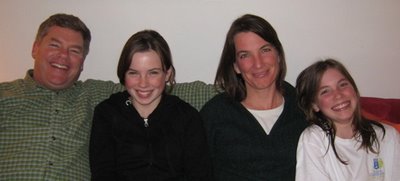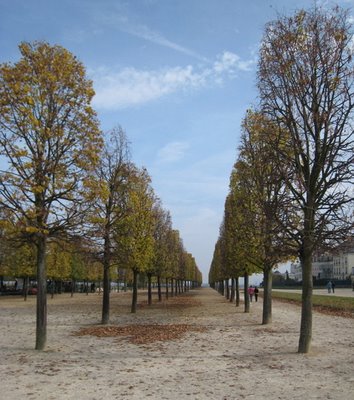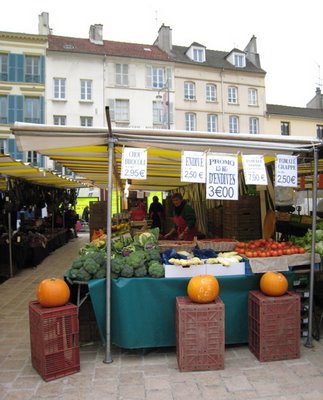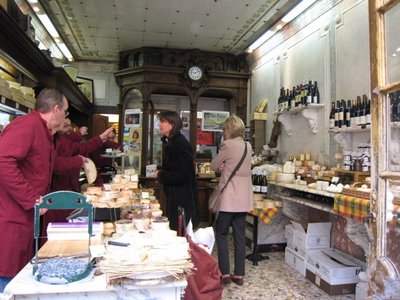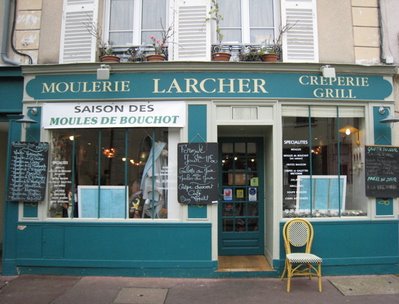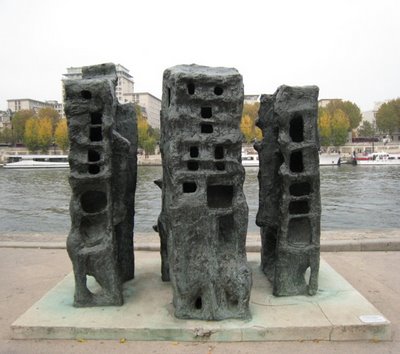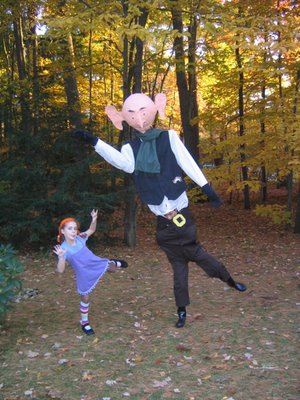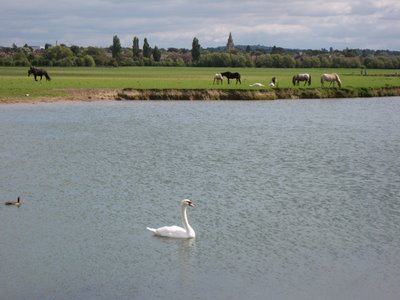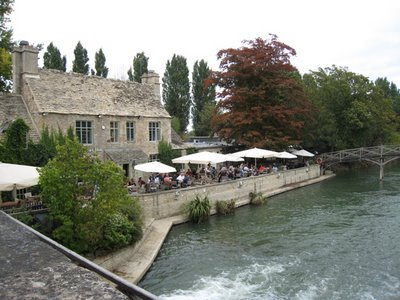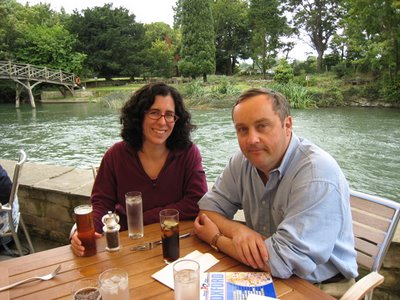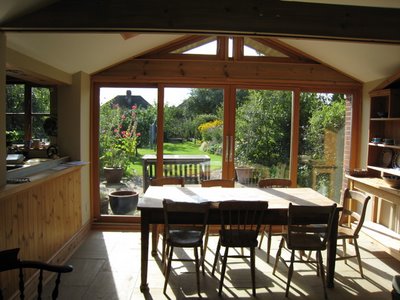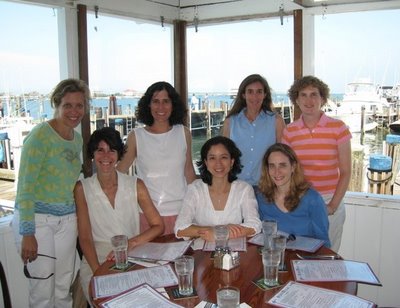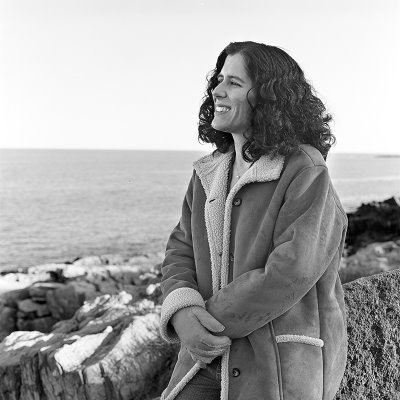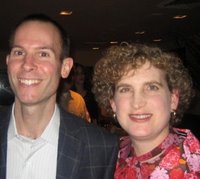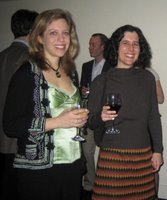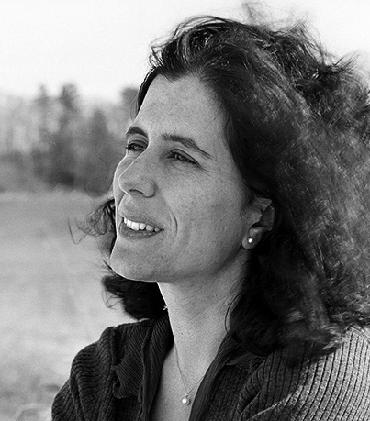Fine Dining in Oxford
 Given the weak dollar to the strong pound, I’ve had few opportunities to eat out in Oxford. Some might assume that this was a fortunate omission, but British restaurants have improved over the two decades I’ve dined in England. These days London rivals NYC if not quite Paris. Oxford is nowhere near the gourmet standard, but there are some decent places for a treat. Lunches are more affordable.
Given the weak dollar to the strong pound, I’ve had few opportunities to eat out in Oxford. Some might assume that this was a fortunate omission, but British restaurants have improved over the two decades I’ve dined in England. These days London rivals NYC if not quite Paris. Oxford is nowhere near the gourmet standard, but there are some decent places for a treat. Lunches are more affordable. If you only have one night in Oxford, I’d recommend The White Hart in the historic village of Wytham. It’s pronounced white-ham as in if you don’t know how to say it, you don’t belong there. With a population of 120, who cares? The stone and thatched cottages of Wytham are well worth the short drive from Oxford center.
 The White Hart (beware there are several around Oxford) is a gastro-pub like you would usually only find in London with excellent food served in a casual pub atmosphere. It is pricey but worth it. Easy for me to say, as we went as guests of Henry’s advisor from Harvard, Susan Pharr, and her husband. Everything we had was delicious and as enjoyable as our company.
The White Hart (beware there are several around Oxford) is a gastro-pub like you would usually only find in London with excellent food served in a casual pub atmosphere. It is pricey but worth it. Easy for me to say, as we went as guests of Henry’s advisor from Harvard, Susan Pharr, and her husband. Everything we had was delicious and as enjoyable as our company. 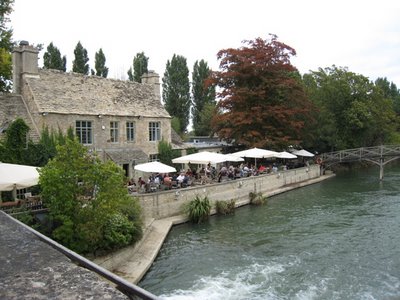
 Another old pub that serves good food is The Trout in Wolvercote. An excellent weekend outing is walking 2 miles up the towpath along the Isis/Thames from Oxford to The Trout, and then walking back through Port Meadow, but bring your wellies.
Another old pub that serves good food is The Trout in Wolvercote. An excellent weekend outing is walking 2 miles up the towpath along the Isis/Thames from Oxford to The Trout, and then walking back through Port Meadow, but bring your wellies. For the less intrepid, you can take the number six bus back to Oxford center. The food is not as good as the White Hart, but the setting on the river is nicer. I’d recommend the wood oven pizza and a pint of Landlord over the more fancy fare. Not a bad place to have as our local pub.
Yesterday I met an American friend and a London transplant to sample the quintessential Oxford institution, Browns. Our party included a two-year-old, and this was the place for family dining. My friend tried the vegetarian special, I had a hot chicken salad and the Londoner always gets her favorite fish cakes. The two-year-old recommends the chocolate ice-cream but not the booster chair. I confess none of us were too focused on the food.
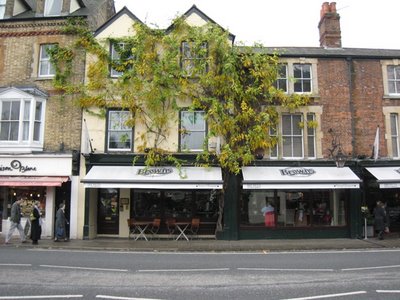 For lunch Browns was better than Brasserie Blanc. My husband and I should have known better. Raymond Blanc is considered one of the best chefs in England, and his Le Manoir aux Quat’Saisons in Great Milton, Oxford has two-Michelin stars. Henry and I celebrated our tenth anniversary there. Our room at the inn overlooked beautiful gardens and couldn’t have been more romantic.
For lunch Browns was better than Brasserie Blanc. My husband and I should have known better. Raymond Blanc is considered one of the best chefs in England, and his Le Manoir aux Quat’Saisons in Great Milton, Oxford has two-Michelin stars. Henry and I celebrated our tenth anniversary there. Our room at the inn overlooked beautiful gardens and couldn’t have been more romantic. Sadly the inn’s accommodations were far better than the haute cuisine food, which was served with pseudo-French pretension. I still remember the two little blond girls in starched white dresses and ironed bows sitting with their stern parents at an adjacent table. I felt as uncomfortable as the children and about as welcome, but that was seven years ago.
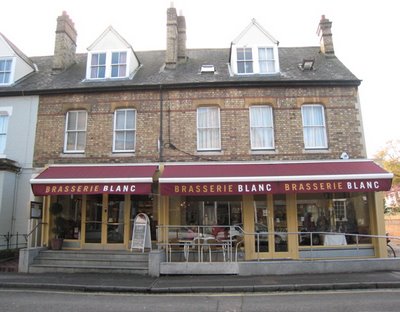 The atmosphere at Brasserie Blanc was far more relaxed, and the service couldn’t have been better. The food wasn’t bad but still a disappointment. My Boeuf Bourguignon was greasy and tough, but Henry’s grilled salmon was okay. I filled up on fresh bread. The lemon and mango sorbets were fine. The atmosphere felt generic, but it was fun sitting in the big windows looking over Jericho Village. It didn’t feel like Thanksgiving.
The atmosphere at Brasserie Blanc was far more relaxed, and the service couldn’t have been better. The food wasn’t bad but still a disappointment. My Boeuf Bourguignon was greasy and tough, but Henry’s grilled salmon was okay. I filled up on fresh bread. The lemon and mango sorbets were fine. The atmosphere felt generic, but it was fun sitting in the big windows looking over Jericho Village. It didn’t feel like Thanksgiving. The best meal we’ve had in Oxford center was at Chiang Mai Kitchen off High Street. The excellent Thai restaurant is almost impossible to find, hidden down a narrow alley that is so Oxford. The building felt as ancient with white washed walls, exposed beams and old windows.
The best meal we’ve had in Oxford center was at Chiang Mai Kitchen off High Street. The excellent Thai restaurant is almost impossible to find, hidden down a narrow alley that is so Oxford. The building felt as ancient with white washed walls, exposed beams and old windows. 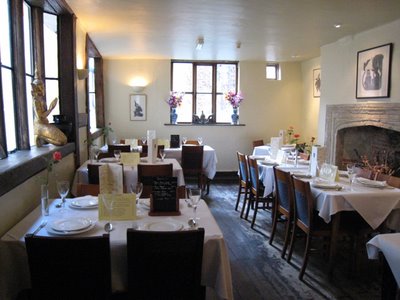 The Thai figurines and orchids seemed an odd contrast but worked. I only wished there had been a fire in the fireplace. The food was as tasty as it was beautifully presented. We especially liked the dumplings (Khanom Jeep) and the chicken in spinach leaves (Mieng Gai.) Perfect for a family outing or even a nice date.
The Thai figurines and orchids seemed an odd contrast but worked. I only wished there had been a fire in the fireplace. The food was as tasty as it was beautifully presented. We especially liked the dumplings (Khanom Jeep) and the chicken in spinach leaves (Mieng Gai.) Perfect for a family outing or even a nice date.I think I’ll send my NOT CRICKET characters to the Trout for a pint. Does that mean I get to write off “the bill?” Don’t ask for “the check” in England. If you have leftovers it’s “to take away” not “to go.” It’s a “pint of lager”(light) or “bitter”(darker) not beer, and, yes, it will come at cask temperature, not chilled. Don’t expect ice cubes in anything. Ask for the loo or toilet, not the bathroom, and you are good to go. Cheers!
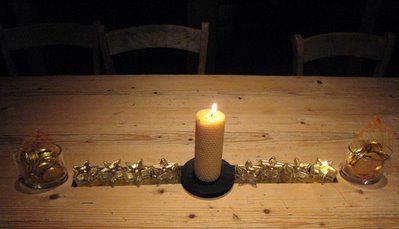 Happy Hanukkah! The chocolate gelt is in pounds, but given the exchange rate, not so bad.
Happy Hanukkah! The chocolate gelt is in pounds, but given the exchange rate, not so bad.P.S. If you know of other good Oxford restaurants/pubs, please comment. I'm hungry for the info.
Labels: England, Great Milton, holidays, Jericho, Not Cricket, Oxford, Port Meadow, pubs, restaurants, Wolvercote, Wytham
